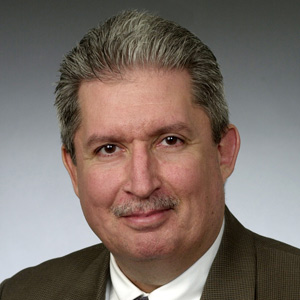Big Data and Analytics: Body of Knowledge
An open lecture by Professor J. Alberto Espinosa from Kogod School of Business at American University
Map © OpenStreetMap. Some rights reserved.
Professor J. Alberto Espinosa is a visiting professor hosted by Aalto Science Institute and Department of Industrial Engineering and Management. The topic on big data and analytics cuts a cross a number disciplines and interest areas. Prof. Espinosa is a leading expert on big data analytics and will provide an overview of some of the key components that an organization should have in place to leverage it, including:
(1) BDA Body of Knowledge – knowledge and skills organizations need to acquire (and educational institutions need to teach) for successful BDA.
(2) Business Process - requirements and design necessary to ensure that the organization produces, acquires and captures the necessary data for analytics to take place; and (3) Governance – alignment of business needs with organizational structures, rules and compliance for successful BDA (e.g., privacy, security, data access/sharing, etc.).
Welcome!
Please find a more detailed description of the workshop and Alberto’s bio below.
The importance of big data and analytics (BDA) has been growing dramatically in the last decade. McKinsey Global Institute projected that the US would be facing a shortage in 2018 of 140,000 to 190,000 workers with deep analytical expertise and 1.5 million data literate managers. A more recent McKinsey quarterly reported in 2011 stated that “large-scale data gathering and analytics are quickly becoming a new frontier of competitive differentiation. IBM invested over $14 billion in over 24 acquisitions between 2005 and 2010 to expand their analytics capabilities and projected $16 billion in related revenues by 2015. To compound things more, there has been an explosive growth in the amount of data being produced with 90% of the data available created in the last 2 years alone. These and many other similar reports have sparked a frantic race by organizations and educational institutions to adopt BDA practices and programs to meet this demand. BDA were once considered strategic practices, but they are quickly becoming mainstream in the US -- it is expected that in a no distant future no organization will be competitive without them and no business school without serious analytics education programs will be taken seriously. But big data and analytics today permeate all aspects of business and types of organizations. Business, technical, academic and scientific organizations are all embracing BDA, but their needs and types of BDA methods and tools can vary substantially. In this talk, Prof. Espinosa will provide an overview of the knowledge and skills organizations need to acquire, and educational institutions need to teach in these areas, and share his experiences from the many one-on-one interviews his group has conducted with analytics professionals, workshops with academics and practitioners in this area, and from designing and implementing two masters programs in analytics at American University.
Prof. Espinosa's body of knowledge framework can be found in his recent co-authored book "Big Data for Service Delivery" <http://businessexpertpress.com/books/obtaining-value-big-data-service-delivery
Bio:
 Prof. Espinosa is a Full Professor of Information Technology at Kogod School of Business, American University and a visiting scholar at Aalto University, School of Science, Department of Industrial Engineering and Management. He holds Ph.D. and Master of Science degrees in Information Systems from the Tepper School of Business at Carnegie Mellon University, a Masters degree in Business Administration from Texas Tech University; and a Mechanical Engineering degree from Pontificia Universidad Catolica, Peru. He is the architect of Kogod's MS Analytics degree, both campus and online. He is also the curriculum architect for all information systems and technology undergraduate specializations. He has co-authored two books, one on work coordination across time zones and another on big data and analytics for service delivery. His research focuses on coordination and performance in global technical projects across global boundaries, particularly distance and time separation (e.g. time zones).
Prof. Espinosa is a Full Professor of Information Technology at Kogod School of Business, American University and a visiting scholar at Aalto University, School of Science, Department of Industrial Engineering and Management. He holds Ph.D. and Master of Science degrees in Information Systems from the Tepper School of Business at Carnegie Mellon University, a Masters degree in Business Administration from Texas Tech University; and a Mechanical Engineering degree from Pontificia Universidad Catolica, Peru. He is the architect of Kogod's MS Analytics degree, both campus and online. He is also the curriculum architect for all information systems and technology undergraduate specializations. He has co-authored two books, one on work coordination across time zones and another on big data and analytics for service delivery. His research focuses on coordination and performance in global technical projects across global boundaries, particularly distance and time separation (e.g. time zones).
His work has been published in leading scholarly journals, including: Management Science; Organization Science; Information Systems Research; the Journal of Management Information Systems; IEEE Transactions on Software Engineering, IEEE Transactions on Engineering Management; Communications of the ACM; Human Factors, Information, Technology and People; and Software Process: Improvement and Practice. He teaches introduction to information technology, business process analysis, web programming and predictive analytics, among other courses. He also has several years of working experience, first as a design engineer and later as a senior manager with international organizations directly supporting, supervising and formulating policy for finance and global IT functions, where he designed and developed a number of software applications to support geographically distributed work.


